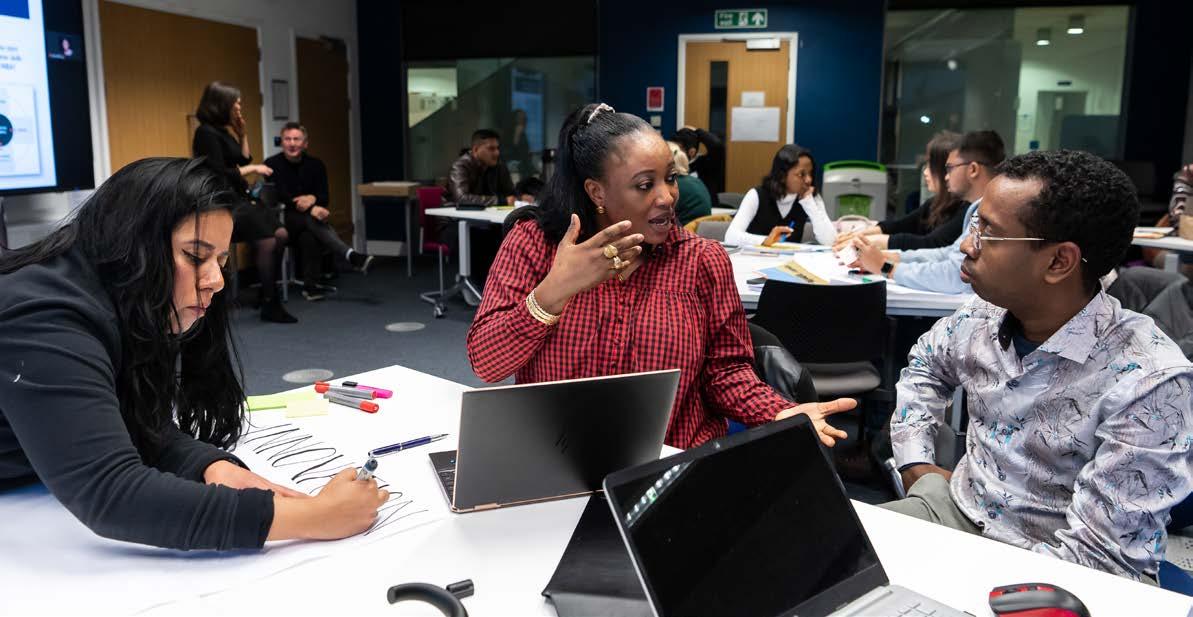
3 minute read
The four ‘super’ actions for keeping on top of work email
From inbox zero to turning off notifications, there is a lot of advice about how to manage emails at work.
From this, researchers identified four super actions:
Advertisement
1. Communicate work-email access boundaries: clearly state when you are not available to deal with email, stick to this, and don’t email others when they are not working.
2. Regularly check and review your inbox: delete, sort, and reprioritise.
3. Only use work email to send work-relevant communications.
4. Be civil, courteous, and considerate in work-email exchanges. Dr Emma Russell, Reader in Occupational and Organisational Psychology and Co-Investigator of the Digital Futures at Work Research Centre, who led the study, said:
“Statista is predicting that an estimated 4.6 billion people will be using email by 2025. However, people have been subjected to almost 25 years of often contradictory advice about how to manage emails at work.
“Our new research, based on a comprehensive analysis of 25 years of email research, shows that strategies to stay on top of work-email don’t have to come at the expense of your well-being.
“The evidence shows that these four ‘super’ actions both reduce stress and improve productivity.”
Find out more about University of Sussex Business School research at www.sussex.ac.uk/business-school
Now, a new study from the University of Sussex Business School aims to help people make use of the email strategies that are most likely to work, whilst also enabling employers to foster healthier and more efficient email cultures.

Academics from the University of Sussex Business School, Loughborough University and ESCP Business School, Madrid conducted the research. They analysed 25 years of academic research to identify the four actions you should take to improve both well-being and productivity while staying on top of your emails.
Published in the Journal of Occupational and Organizational Psychology, the researchers studied the findings from 62 empirical papers, using action regulation theory – essentially how we regulate our behaviour in the pursuit of different goals –to develop a framework that offers practical recommendations to both organisations and individuals.
Put the latest management theory into practice with the Sussex MBA
The Sussex MBA is built on four pillars to help you develop the leadership needed in today’s disrupted business environment:
• digital work – the move to digital technologies and virtual work environments
• innovation – develop new strategies to adapt to disrupted environments
• resilience – ensure employee wellbeing and the sustainability of business models
• policy – lobby and influence policymakers at local, regional, and national levels.
Enhance your critical and strategic thinking and gain the practical skills to apply cutting-edge business theory. You will develop a range of management and leadership skills under the guidance of leading academic and industry experts.

Flexible study options mean you can fit your studies around your work or family commitments and apply what you learn directly to your job. Study full-time in one year or part-time over two years, starting in January or September. Classes are taught on Fridays and Saturdays helping you schedule your time.
To find out more visit: www.sussexmba.com
Digital entrepreneurship on retail platforms: A way to formalise employment for young people in Nigeria and the UK
This new study from the Digital Futures at Work Research Centre investigates the opportunities and barriers digital retail platforms offer to enable young people’s entrepreneurship as a sustainable income stream in Nigeria and the United Kingdom.
The study found that like any entrepreneurial endeavour, success and income depend on the sellers’ degree of engagement in terms of time and resource commitment. In the UK, only those who can break through as “top sellers” feel it is sustainable; others see it as a part-time role and a way to supplement their income, but they are not confident in transitioning to a full-time role without a guaranteed income.
Evidence illustrated how for some young sellers, there was the possibility of building full-time careers and transitioning from online platforms to establishing physical stores and/or creating their successful e-commerce websites; for others, this remained a marginal side activity. Young people’s involvement with digital platforms offers the opportunity to acquire new skills (business, core work, and socio-emotional skills), develop existing ones and pursue personal growth. Some of the business skills they developed include marketing, budgeting/ accountancy, international logistics, problem-solving and customer service. Some of these skills were supported by the platforms, and others they learned independently.
To read the full report, visit: www.digit-research.org






